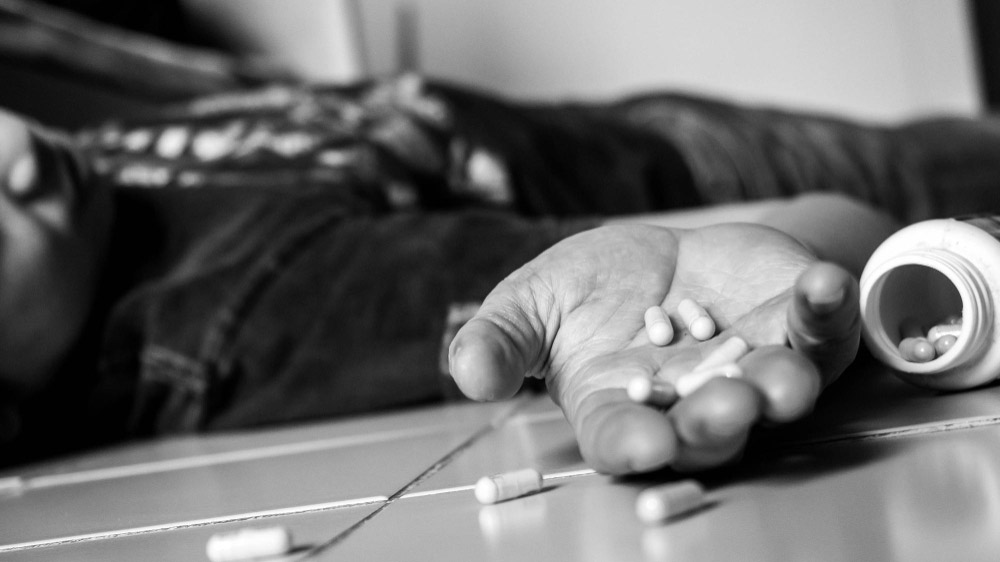If you’ve ever experienced a rough morning after a night of using MDMA, you know well how hard the come-down experience can be. That “euphoric high” that MDMA offers can quickly give way to a crushing sense of exhaustion, anxiety, and emptiness that many call the “Tuesday Blues.”
An MDMA come-down is the combined collection of negative physical and psychological symptoms that occur after the drug’s initial effects work their way through the body.
Unlike the ongoing withdrawal that can follow prolonged drug use, a come-down can follow even a single use of MDMA. The feeling can last anywhere from 24 hours to several days, depending on the use and your body’s interaction with the drug.
How do you stop the come-down after MDMA? Is there a way to find freedom from the experience itself – and the gnawing need you feel to return to the drug?
Let’s explore what’s happening in your body and brain so you can handle this difficult situation more safely.
What Is MDMA?
Also referred to as Ecstasy or Molly, MDMA is a synthetic drug that works as both a stimulant and a hallucinogen.
MDMA works by increasing the activity of certain chemicals in the brain – particularly the feel-good chemicals serotonin, dopamine, and norepinephrine. The result is a feeling of euphoria, increased energy, and empathy, often lasting for several hours.
When the initial effects wear off, you may begin to notice that your body “feels” the aftereffects. You may feel depleted and exhausted, as MDMA’s impact on neurotransmitters plays out through the rest of your body.
What Causes the MDMA Come-Down?
The intense high from MDMA comes at a cost to your brain’s natural chemistry.
MDMA floods your body with those chemicals that help you feel relaxed and euphoric, but those neurotransmitters are depleted quickly. Once the drug wears off, your brain is left feeling like a maxxed-out credit card after a shopping spree.
The sudden drop in neurotransmitters is partially to blame for feeling emotionally drained and physically empty after use. Combine that with dehydration and exhaustion (as well as a lack of sleep), and the effects can be compounded quickly.
Common symptoms of an MDMA come-down can include:
- High levels of fatigue and a loss of energy that makes getting out of bed feel impossible
- A sense of depression that can range from mild sadness to hopelessness
- Higher levels of irritability, anxiety, and sometimes aggression
- A loss of appetite and a feeling of “brain fog” that leaves you confused
Some users report feeling physical symptoms such as headaches, muscle tension, and nausea as part of their come-down as well. In severe cases, some may experience suicidal thoughts or psychosis during a come-down.
How Do You Minimize MDMA Come-Down Effects?
The reality is that there is no “magic bullet” for an MDMA come-down. But there are some steps you can take to help heal your body and mind faster.
1. Stay Hydrated
Before and during a come-down, hydration and electrolytes are your best friend. MDMA affects your body’s ability to regulate temperature and fluids, which can leave you dehydrated.
However, don’t overdo your consumption, as excessive water consumption can lead to a dangerous condition called hyponatremia.
2. Eat A Balanced Diet
Maintaining a balanced diet is important during recovery – even when eating feels like the last thing you want to do.
Remember, with your neurotransmitter supply emptied, your brain needs raw materials to rebuild.
Eat foods rich in tryptophan (which helps produce serotonin) as well as carbohydrates from whole grains. Antioxidant-rich foods like berries can also help fight back against the oxidative stress from MDMA use.
3. Rest & Sleep
Sleep and rest are non-negotiable for recovery. When you sleep, your brain goes into repair mode – especially during deep sleep phases. Avoid trying to use sleep aids to help you, as these can interfere with your brain’s natural hormone production as well.
4. Try Supplements
Some individuals use supplements during an MDMA come-down; however, the evidence for effectiveness may vary from person to person and supplement to supplement.
Options such as Vitamin C, magnesium, and B-complex vitamins are generally safe options that support overall recovery. Avoid any supplements that encourage or interfere with serotonin development.
When the Come-Down Is a Sign of a Bigger Problem
While there are a variety of steps you can take to help offset the impacts of an MDMA come-down, there are also dangers with prolonged MDMA use.
If you feel that you are using MDMA frequently to achieve that initial high, and you begin to feel that your use is becoming a dependence, it may be time to seek professional help.
As individuals become increasingly dependent on MDMA to achieve a particular state of mind, they may find that the come-downs become more intense and difficult to recover from.
Regular use of MDMA can result in long-lasting changes in brain chemistry, making depression and anxiety persistent problems rather than temporary come-down symptoms.
What are the warning signs that you might need to consider professional help?
- You are using MDMA frequently, at a rate of once a month or more
- You begin to experience severe depression or suicidal thoughts during come-downs
- You are starting to use other illicit substances to cope with come-down symptoms
- You find that MDMA use is interfering with your quality of life, and you begin to lose interest in things that once brought you joy and purpose
Dependence on any substance can quickly become dangerous. Fortunately, hope and recovery are available with the right team of caregivers.
How Genesis House Can Help
At Genesis House, we know that party drug use can often begin innocently – but spiral into behavior that is much more serious. That’s why we make it easy to start the conversation about recovery in a safe and dignified way.
Our holistic recovery approach is designed to address the physical aspects of stimulant as well as party drug use, while helping you navigate the emotional and psychological factors that drive it.
We combine comprehensive support and nutritional counseling to help restore your body’s balance, as well as professional mental health services that can address any underlying anxiety or depression.
Find hope and healing in a judgment-free environment where you can explore your relationship with substances and work toward lasting recovery. If you feel that your MDMA come-downs feel harder every time, it might be time to talk to someone. Our team is here to help with confidential, compassionate support.
Learn More About MDMA Recovery Now
Research
- Relationship between ecstasy use and depression: a study controlling for poly-drug use – PMC
- Drug Fact Sheet: Ectasy/MDMA
- Your Guide to MDMA’s Effects on the Brain
- MDMA and the Brain: A Short Review on the Role of Neurotransmitters in Neurotoxicity – PMC
- The effect of the ecstasy ‘come-down’ on the diagnosis of ecstasy dependence – PubMed
- Does recreational ecstasy use cause long-term cognitive problems? – PMC
- Does recreational ecstasy use cause long-term cognitive problems? – PMC






